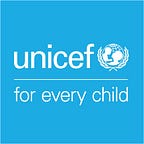Water, water, everywhere, nor any drop to drink
Extreme rain and flooding are bringing cholera and other deadly waterborne disease to communities in northeast Nigeria.
It may be raining across northeast Nigeria but in camps for those displaced by the Boko Haram crisis, there is still a daily struggle to find enough clean water to drink. The rains bring deadly waterborne disease and an increased threat of malaria. A cholera outbreak has been confirmed in the Muna Garage camp in Maiduguri, the epicentre of the crisis, with concerns rising for suspected cases in other parts of the state.
Cholera is caused by consuming contaminated water and food, and often spreads as a result of poor sanitation and hygiene. The risks increase during the rainy season.
Despite the rain, access to clean water is very limited and especially for children living in the most cholera affected areas.
“I shiver when it rains, my home gets wet, I get sick and just want to go home,” says 7-year old Hezbollah Lawan, standing in a big puddle inside Shuwari 8 camp, in Medinatu, Borno State. Hezbollah and many others in the camp have lived there for 8 months after fleeing the attacks of Boko Haram.
This settlement is an informal camp on the outskirts of Maiduguri.
Most people live in makeshift shelters and when it rains, the camp is destroyed.
Heavy rains and the lean season are also contributing to malnutrition rates across a region gripped by food insecurity.
Children continue to bear the brunt of the Boko Haram crisis. Now with the outbreak of cholera the majority of those infected are children.
UNICEF and partners have been working tirelessly since suspected cholera cases were first confirmed to identify the source, set up a cholera treatment centre and provide chlorinated water, as well as stepping up the clearing of latrines in effected areas.
Despite the current crisis, the water, hygiene and sanitation sector remains chronically and critically underfunded. To date, UNICEF has only secured 49% of funding need to provide 2 million of people with access to clean water.
